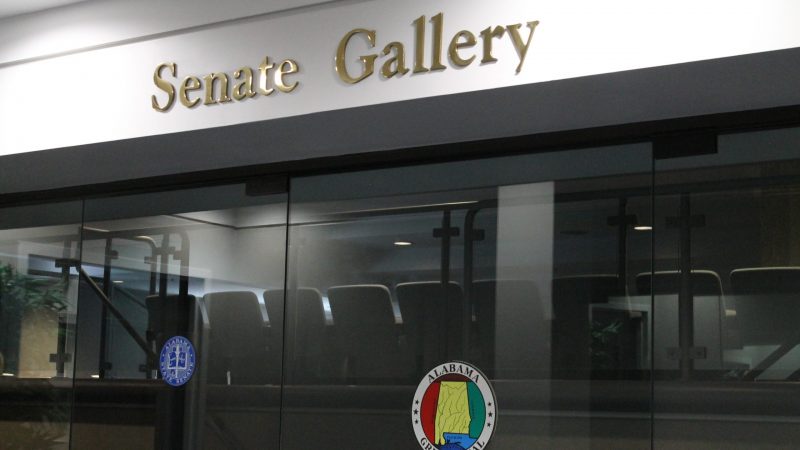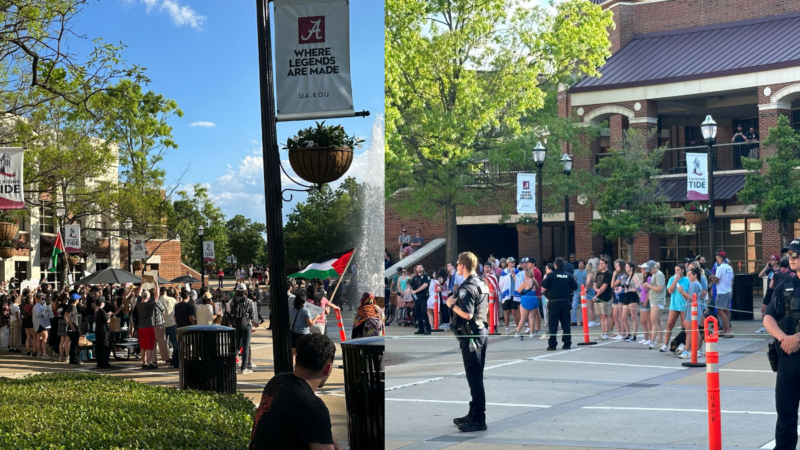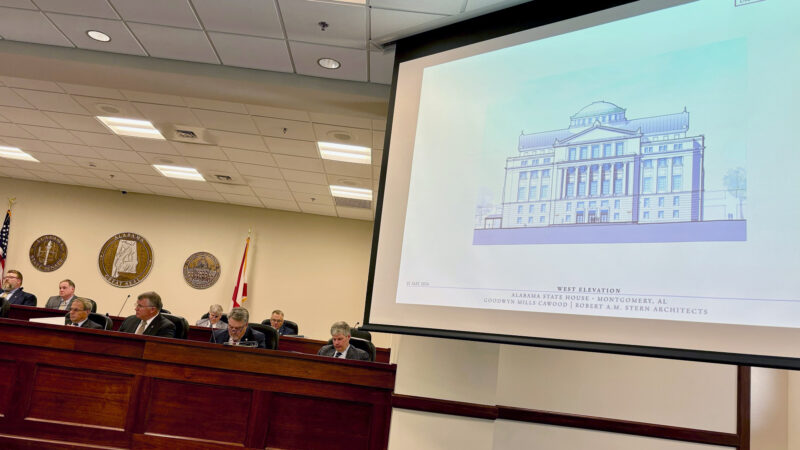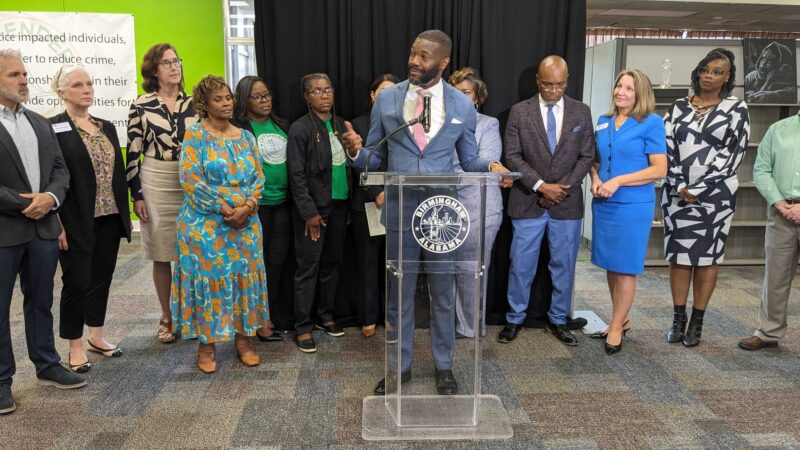Civil Rights Pardons
Birmingham Mayor Larry Langford has issued a blanket pardon to those arrested in the city during the 1960s civil rights protests. Some 2,500, including children and the Reverend Martin Luther King Junior, were jailed during that era of fire hoses and police dogs. But as WBHM’s Andrew Yeager reports, the move seems more about reconciling the past than altering the record books.
Carol Jackson-Walton calls herself an activist. She sits facing a podium and arc of chairs in a library meeting room, waiting for the start of a city council candidates forum. It’s civic participation that’s far less intense than in 1963 when Jackson-Walton suspended her college career to march on the streets of Birmingham. She says police would round protesters up and take them to the courthouse.
“We looked up on the screen. And I said, I was the first person to see their face up there and I had a number. That’s when it became real to me. I have a criminal record.”
That criminal record would grow, as she and others fought a city leadership intent on maintaining segregation.
“I can remember going to jail once. We stayed one night. The next time was two nights. The next time in jail three. Four and then there was one time. I know I was in there an entire week. When I count it all up, maybe 15 or 16 times or more.”
Jackson-Walton’s record could be changed thanks to a blanket pardon issued this week by Birmingham Mayor Larry Langford. It would allow anyone convicted of protesting the city’s segregation laws to apply for a pardon. Langford, who faces a federal bribery trial later this month, says the idea came after a reporter called the city asking if Birmingham had ever issued pardons for civil rights protestors. The city hadn’t. Still the mayor doesn’t expect people to start lining up.
“Because to many who suffer during that era, it’s a badge of courage and a sign of the struggle.”
Three years ago, Alabama passed a law which offered a similar pardon. But a spokesman for the state parole board says just a single person has applied for one under that law. So even though the action may not mean much work for record keepers, Langford says the move is important for healing, as the city says, “I’m sorry.”
“Sometimes an apology does more for the person extending the apology than it does for the person receiving it.”
Former U.S. Attorney Doug Jones successfully prosecuted two former Ku Klux Klansman for the 1963 bombing of Birmingham’s 16th Street Baptist Church. He says the pardon doesn’t just right a wrong, it sends a message.
“Just as with the church bombing cases, Mr. Mayor, justice delayed does not have to be justice denied.”
For many protesters who were arrested, people like Myrna Carter-Jackson, they appreciate the gesture. But she doesn’t feel the need to seek a pardon.
“But pardon us for what? What did we do that we need to be pardoned? You pardon people when they’ve done something wrong. So I don’t remember being a party of something wrong.”
And now, neither does the city of Birmingham count any wrongs.
Gambling bill in doubt with three days left in the legislative session
Alabama lawmakers are coming down to the finish line for this year’s legislative session. Many bills await passage, but perhaps the biggest one up in the air is a lottery and gambling bill.
Pro-Palestinian demonstration draws counter-protest at University of Alabama
Students gathered demanding the school call for a permanent and immediate ceasefire and to push the school to sever ties with defense contractor Lockheed Martin.
A new Statehouse and related projects will cost about $400 million
The Alabama Legislative Council, a 20-member panel comprised of legislative leaders and their appointees, approved the construction of the new Statehouse last year. The panel was given an update on the project on Wednesday.
New pilot program will offer housing, resources to people leaving prison
The Birmingham Reentry Alliance will provide wrap around services to dozens of men and women adjusting to life after prison.
Alabama committee advances ban on LGBTQ+ pride flags in classrooms
The Senate Education Policy Committee voted 5-2 for the House-passed bill, putting the proposal in line for a possible final passage in the last four days of the legislative session.
A New Orleans garden paid hundreds of dollars in fees for a sewer that doesn’t exist
Galvez Garden owner Lissie Stewart has been fighting the New Orleans Sewerage and Water Board over inaccurate billing for years.







